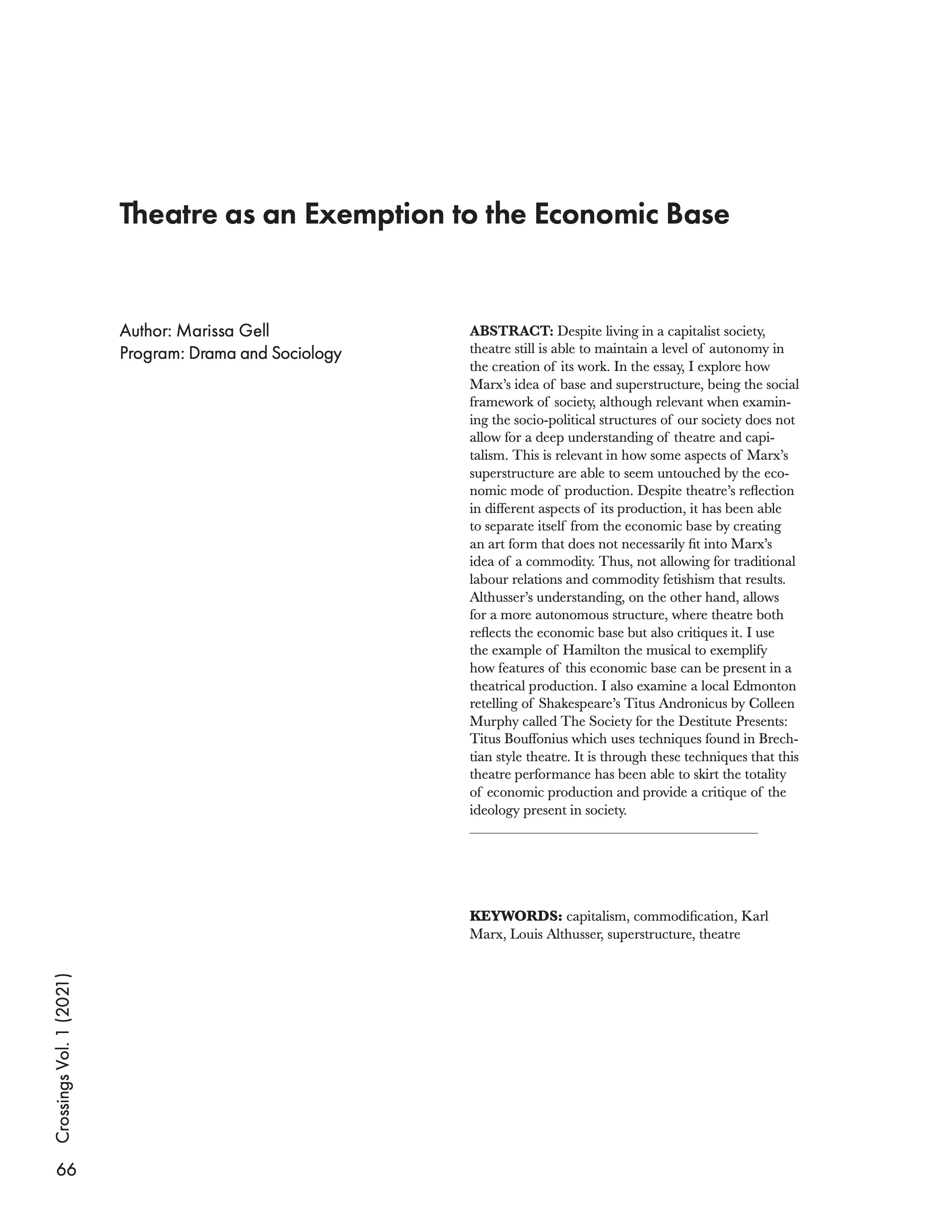Theatre as an Exemption to the Economic Base
DOI:
https://doi.org/10.29173/crossings11Abstract
Despite living in a capitalist society, theatre is still able to maintain a level of autonomy in the creation of its work. In this essay, I explore how Marx’s idea of base and superstructure, being the social framework of society, although relevant when examining the socio-political structures of our society does not allow for a deep understanding of theatre and capitalism. This is relevant in how some aspects of Marx’s superstructure are able to seem untouched by the economic mode of production. Despite theatre's reflection in different aspects of its production, it has been able to separate itself from the economic base by creating an art form that does not necessarily fit into Marx’s idea of a commodity. Thus, not allowing for traditional labour relations and commodity fetishism that results. Althusser's understanding, on the other hand, allows for a more autonomous structure, where theatre both reflects the economic base but also critiques it.
I use the example of Hamilton the musical to exemplify how features of this economic base can be present in a theatrical production. I also examine a local Edmonton retelling of Shakespeare's Titus Andronicus by Colleen Murphy called The Society for the Destitute Presents: Titus Bouffonius which uses techniques found in Brechtian style theatre. It is through these techniques that this theatre performance has been able to skirt the totality of economic production and provide a critique of the ideology present in society.

Downloads
Published
Issue
Section
License
Copyright (c) 2021 Marissa Gell

This work is licensed under a Creative Commons Attribution 4.0 International License.

